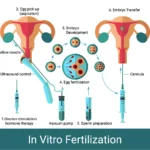This article examines the potential effects of lifestyle factors on male reproductive health.
Evidence of a global decline in human sperm quality over recent decades has been accumulating.
Environmental, occupational and modifiable lifestyle factors may contribute to this decline. This
review focuses on key lifestyles factors such as diet, caffeine intake, tobacco chewing and alcohol
intake.
Method: A comprehensive literature search was performed to identify the major lifestyle
factors associated with male infertility and semen quality. Database searches were limited to reports
published in English only.
Results: A prudent diet consists of high intake of fish, fruit, vegetables and
legumes. Fat in diet is also as essential as other component of the diet. Although largely the evidence is
observation based, evidence appears to support an approach of moderation carbohydrate and fats with
better semen parameters. A good intake of antioxidants in diet and supplement correlates with higher
sperm numbers and motility. The other very important modifiable factors are tobacco chewing, alcohol and
caffeine intake. Nicotine in tobacco is found to suppress sperm progressive motility; it also reduces the
percentage of viable spermatozoa and increases the altered chromatin compactness. Alcohol consumption
leads to increased testosterone level due to change in oxidation metabolism of steroids in liver. Alcohol
oxidation increases the Nicotinamide adenine dinucleotide (NAD) ratio which causes the re-dox state in
favour of conversion of androstenedione into the reduced steroids testosterone and oestradiol. Caffeine
intake has been associated with sperm DNA defects, aneuploidy and DNA breaks.
Conclusion: The major
lifestyle factors discussed in the present review are the potential issues that can possibly impair male
infertility. However, their negative impact can be overcome by behavioural modification and better lifestyle
changes.
Author







